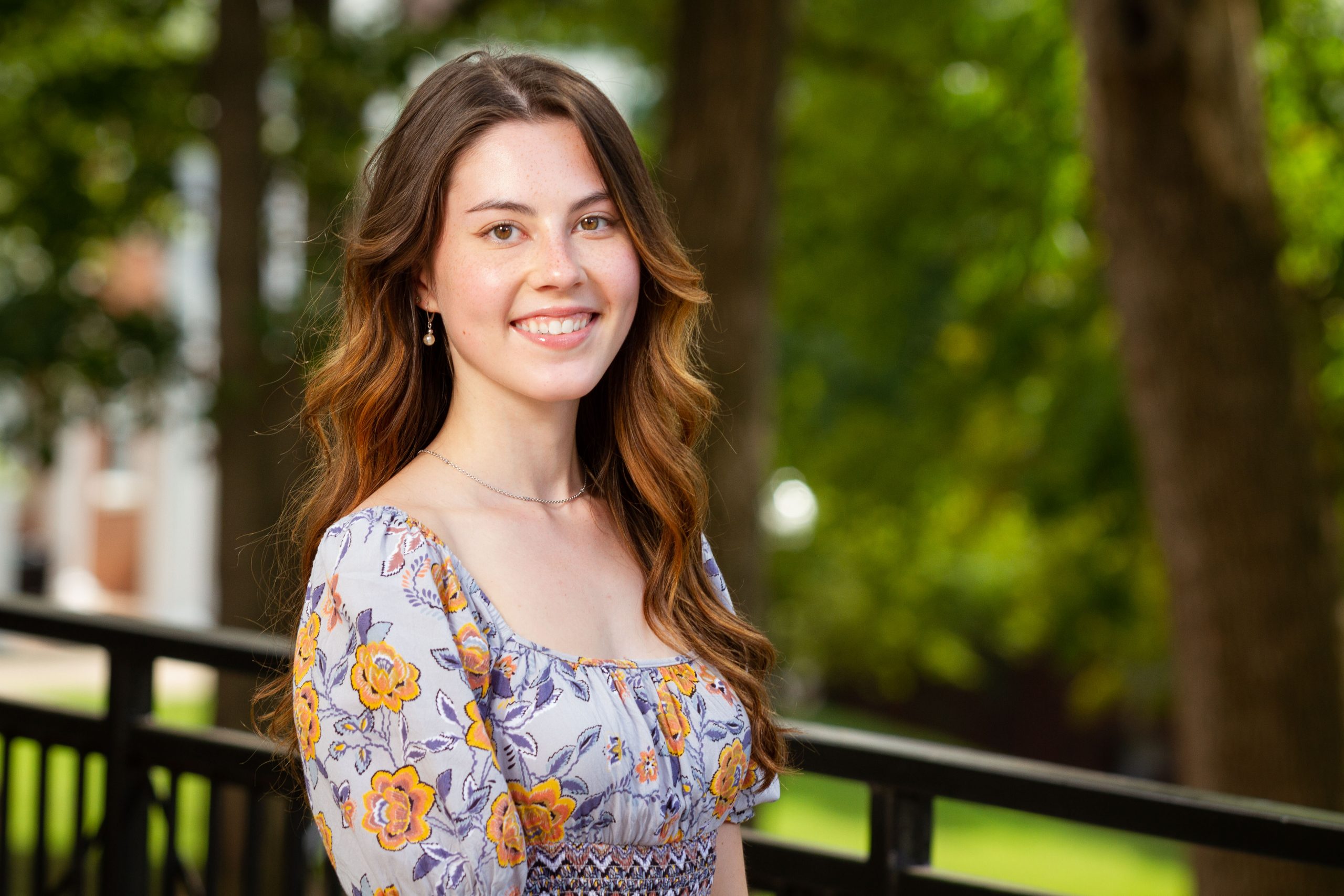Eleven Gatton Academy first-year students have been have been invited to participate in the Howard Hughes Medical Institute (HHMI) National Genomics Research Initiative this fall at WKU.
Students will study under the tutelage of two outstanding WKU faculty members. Dr. Rodney King, associate professor of biology and director of the WKU Biotechnology Center, and Dr. Claire Rinehart, professor of biology and director of the Bioinformatics and Information Science Center (BISC), each have expertise in virology, biotechnology and bioinformatics and will use their experience to engage freshmen students in the yearlong HHMI program in scientific discovery.
In all, 20 incoming WKU students will receive hands-on research experiences in the program. Gatton Academy participants include: Nowelle Altman, Elizabeth Farnsworth, Benjamin Howard, Brittney Howard, Courtney Howard, Tyler Scaff, Natalie Schieber, Sarah Schrader, Josh Song, Cynthia Tope, and Suzanne Van Arsdall.
WKU is one of 12 college and universities selected this year to join HHMI’s Science Education Alliance (SEA) which was launched last year when 12 other colleges and universities joined the group in an education experiment with an ambitious agenda — teach science to students by involving them in scientific discovery on a national scale.
“Interactive lab experiences are a key component of the WKU Biology Department curriculum and we are continually exploring new ways to engage students,” Dr. King said. “We recently implemented a new curriculum, Investigative Biotechnology, which introduces student-directed, problem-based learning at the introductory level. The HHMI science education program will expand our efforts to provide opportunities for our students to become engaged in meaningful original research at the introductory level. In addition, the national scope of the program will facilitate collaboration with other scientists/educators throughout the country.”
WKU’s Bioinformatics and Information Science Center (BISC) also is exploring the development of a certificate and a minor in Bioinformatics, Dr. King said. This is a cross-disciplinary initiative involving the departments of Biology, Mathematics and Computer Science. One course in Bioinformatics and several in statistics and data mining have recently been introduced into the curriculum to support this initiative and there are plans to add additional courses.
“The HHMI program will help us create an introductory pipeline to research experiences that will complement our existing and planned instructional programs and allow WKU freshman to engage in the thrill of discovery,” Dr. King said.
HHMI (www.hhmi.org) created the Science Education Alliance in 2007 in the hope that it would become a resource for science educators from across the nation. It allows faculty to work together to deliver innovative science education programs and bring the excitement of the doing of science directly to students in a novel, collaborative way. The Institute has committed $4 million over four years to the Alliance.
The SEA’s first project is the National Genomics Research Initiative, a two-part, year-long research course offered by colleges and universities selected through a national competition. The course is aimed exclusively at beginning college students, who make real discoveries by doing research on bacterial viruses, called phage. In the first term, the students isolate colonies of phage from locally collected soil samples. Given the diversity of phage, each one is almost certain to be unique, so the students get to name their newly identified life form. They then spend the rest of the term purifying and characterizing their phage and extracting its DNA.
Between terms, the purified DNA is sent to the Joint Genome Institute-Los Alamos National Laboratory in New Mexico, where it is sequenced. In the second term, the students receive files containing their phage’s DNA sequence. The students then use bioinformatics tools to analyze and annotate the DNA from their phage.
WKU and the 11 other new SEA colleges and universities were chosen from among 33 applicants. The schools, ranging from small private colleges to large research universities, will start offering the course in fall 2009. HHMI provides research and laboratory materials and the support from the SEA’s director and a dedicated HHMI staff.
Another four colleges will join the Alliance as associate members. They will attend training sessions that will allow them to implement this research experience in laboratory classes on their campuses. Eventually, HHMI will select at least 36 schools to participate in the genomics research initiative as full members.
The first 12 schools, chosen in 2007, began offering the course in fall 2008. After one term of the course, many faculty who have been teaching the Alliance’s innovative genomics research course to freshmen are now realizing they may never again teach science courses the same way.
“When you visit these schools, you can see that institutional transformation is occurring,” said Dr. Tuajuanda Jordan, director of the SEA program at HHMI. “We have given these educators ammunition to show their colleagues that research courses are a viable way to engage students and possibly retain them in the sciences.”
The new participants in the National Genome Research Initiative are: Brigham Young University, Provo, Utah; Cabrini College, Radnor, Pa.; Calvin College, Grand Rapids, Mich.; Georgia State University, Atlanta; Lehigh University, Bethlehem, Pa.; North Carolina State University, Raleigh, N.C.; St. Joseph’s University, Philadelphia; University of Colorado, Boulder, Colo.; University of Montana, Missoula, Mont.; University of North Texas, Denton, Texas; University of Puerto Rico, Cayey, Puerto Rico; Western Kentucky University, Bowling Green.
The associate members are: Alabama A&M University, Normal, Ala.; City University of New York, Queen’s College; Culver-Stockton College, Canton, Mo.; Virginia Commonwealth University, Richmond, Va.
(A news release about the project from HHMI is available online at http://www.hhmi.org/news/20090108sea.html)


